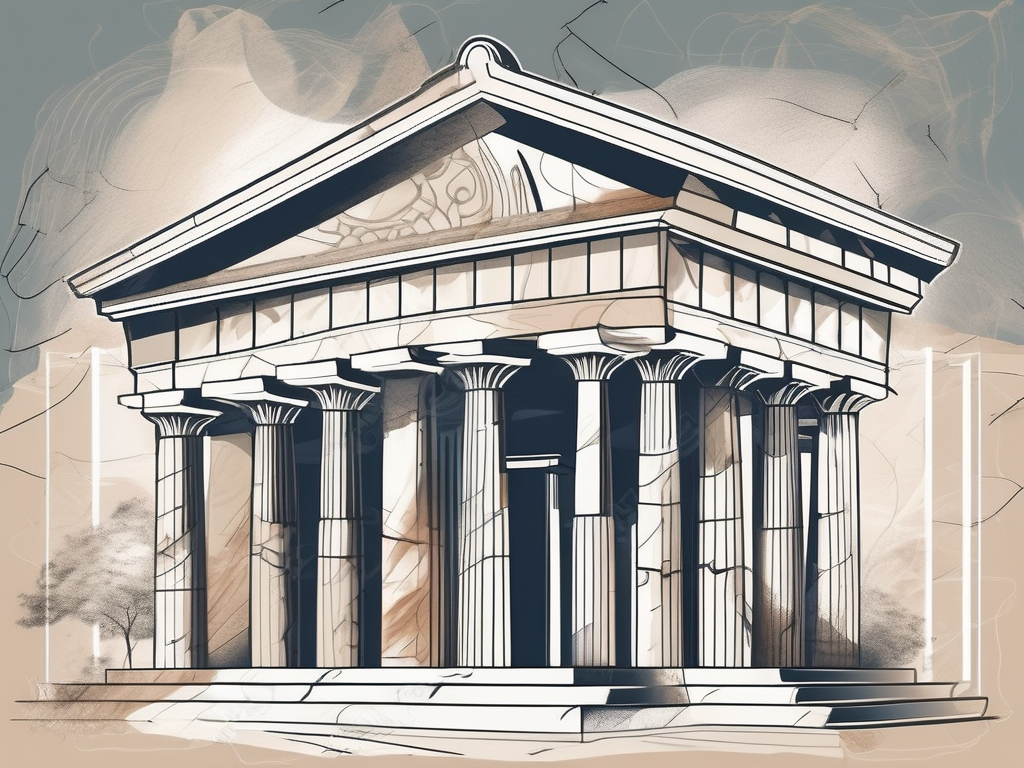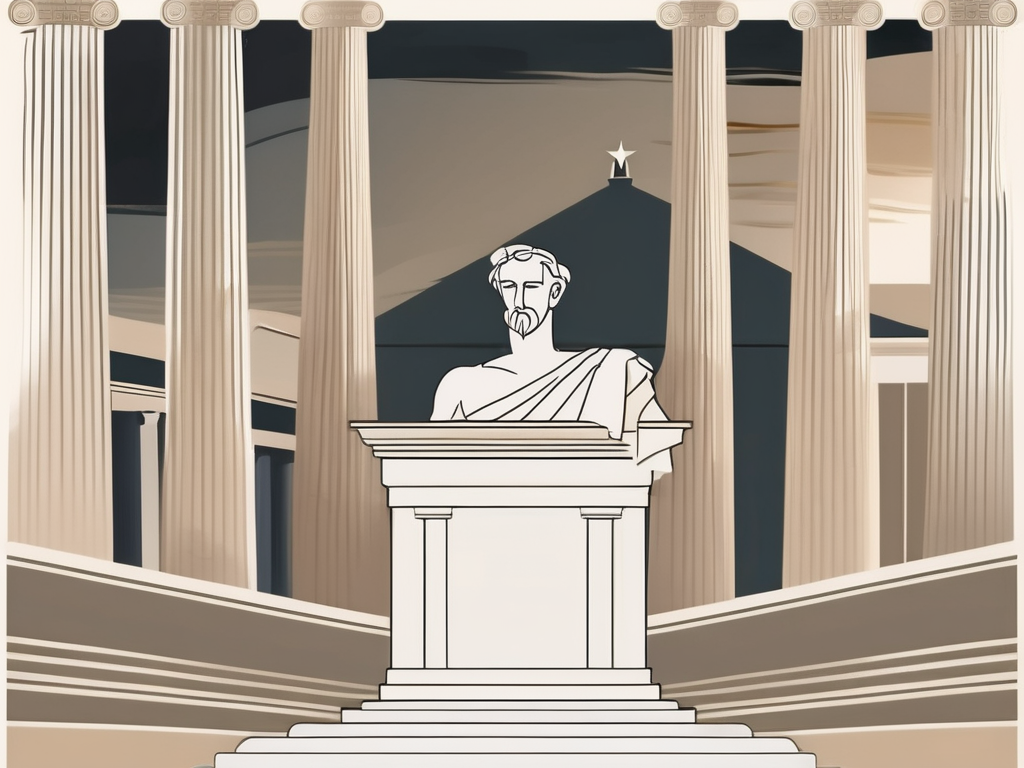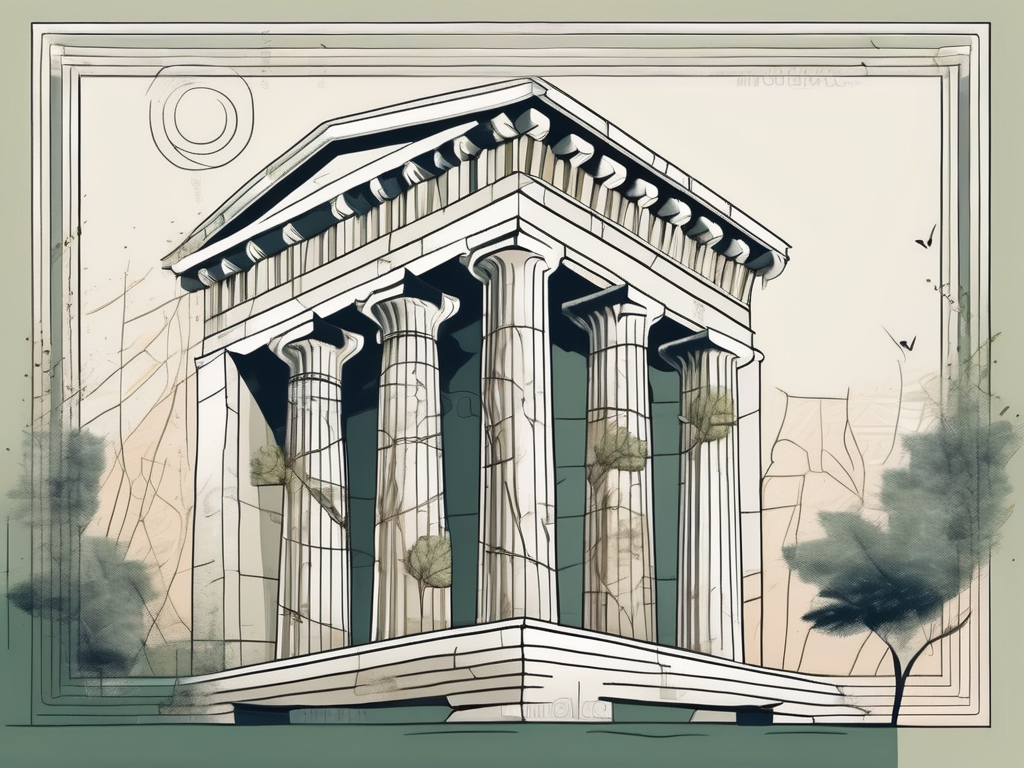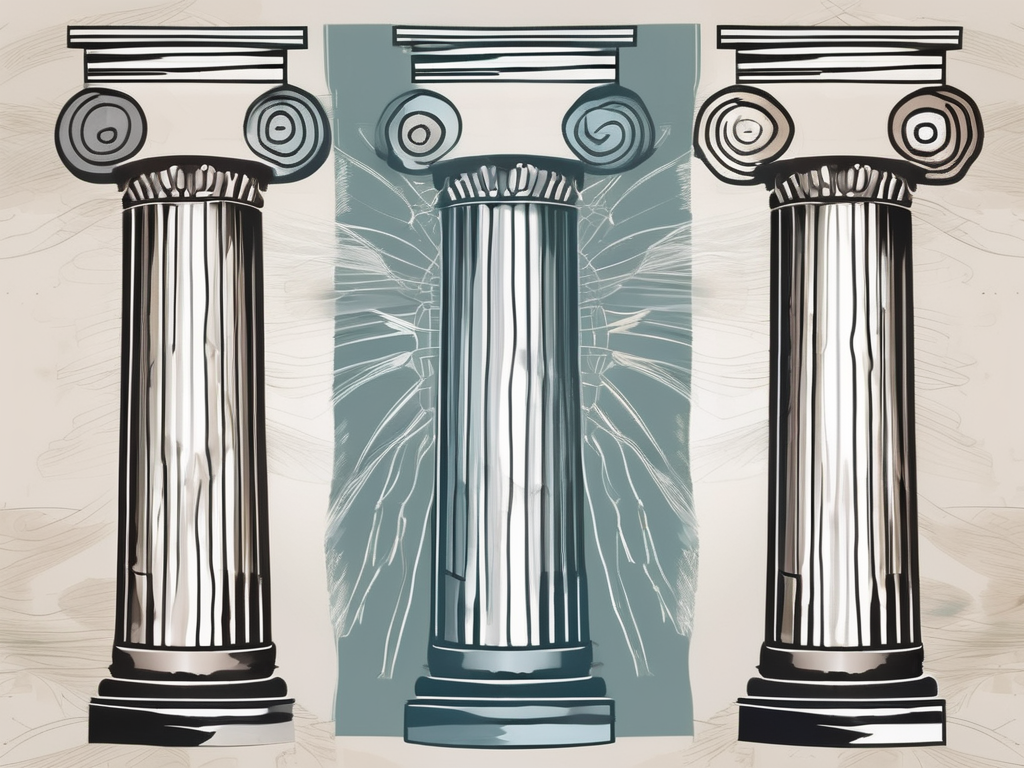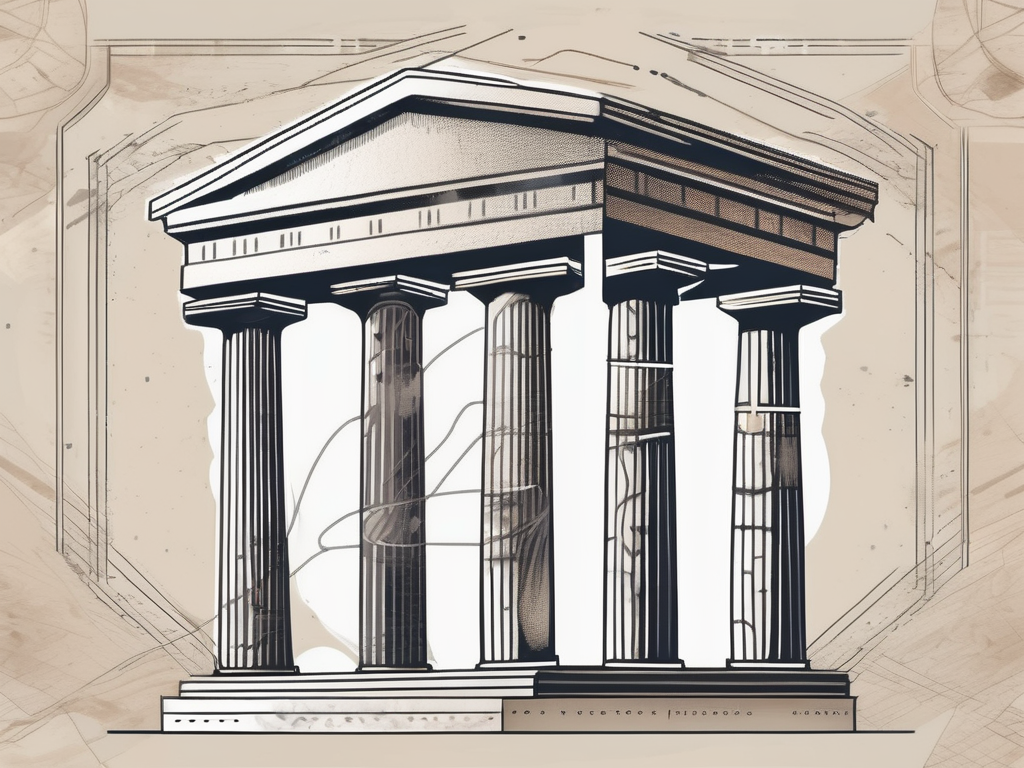Parmenides, an ancient Greek philosopher, is often credited with shaping the course of Western philosophy. His ideas on being, permanence, and the nature of reality have had a profound impact on thinkers throughout history. In this article, we will explore Parmenides’ background, his philosophical doctrine, his influence on ancient Greek philosophy, criticisms of his ideas, and his relevance in modern philosophy.
Understanding Parmenides’ Background
Parmenides was born in Elea, a Greek colony in southern Italy, around 515 BCE. Little is known about his early life and education, but it is believed that he received a comprehensive education in philosophy and mathematics.
Elea, the city of Parmenides’ birth, was a bustling hub of intellectual activity during his time. The city was known for its vibrant philosophical community, attracting scholars and thinkers from all over Greece. Parmenides, growing up in this intellectually stimulating environment, was exposed to a wide range of philosophical ideas and debates from a young age.
As a child, Parmenides showed a keen interest in the natural world. He would spend hours observing the changing seasons, the movement of celestial bodies, and the behavior of animals. These early observations would later shape his philosophical inquiries into the nature of reality.
Early Life and Education
Parmenides’ early life remains shrouded in mystery. However, it is likely that he received his education in Elea, where he studied under the guidance of local philosophers and scholars.
His teachers recognized his exceptional intellect and nurtured his philosophical curiosity. They introduced him to the works of influential thinkers such as Pythagoras and Anaximander, exposing him to a wide range of philosophical perspectives.
Parmenides’ education was not limited to philosophy alone. He also received a rigorous training in mathematics, which provided him with a solid foundation for logical reasoning and analytical thinking. This interdisciplinary approach to education would greatly influence his later philosophical theories.
Influences on His Philosophical Thought
Parmenides was strongly influenced by the teachings of earlier philosophers, particularly Xenophanes and Heraclitus. Xenophanes’ critique of anthropomorphic gods led Parmenides to question the traditional religious beliefs of his time. Heraclitus’ ideas on the flux and unity of reality played a significant role in shaping Parmenides’ own notions about the nature of existence.
Xenophanes’ radical ideas challenged Parmenides to question the prevailing religious dogmas of his society. He began to contemplate the nature of divinity and the limitations of human understanding. These inquiries would later form the basis of his philosophical arguments.
Heraclitus, on the other hand, introduced Parmenides to the concept of constant change and the interconnectedness of all things. This notion of flux deeply resonated with Parmenides, inspiring him to explore the fundamental nature of reality and the possibility of a timeless and unchanging existence.
As Parmenides delved deeper into these philosophical ideas, he began to develop his own unique theories, which would later have a profound impact on Western philosophy. His philosophical journey was just beginning, and the world would soon be introduced to his groundbreaking ideas.
Parmenides’ Philosophical Doctrine
Parmenides’ philosophical doctrine is centered around two key concepts: being and permanence.
The ancient Greek philosopher Parmenides developed a profound philosophical doctrine that continues to captivate thinkers to this day. His ideas revolve around the fundamental nature of reality and the nature of existence itself.
The Concept of ‘Being’
According to Parmenides, being is the ultimate reality, unchanging and eternal. He argued that the world perceived through the senses is mere illusion, and true understanding can only be achieved through reason.
Imagine a world where everything you perceive is merely a mirage, a fleeting illusion that deceives your senses. Parmenides challenges us to question the nature of our reality and to seek a deeper understanding beyond the surface appearances.
In Parmenides’ view, being is not subject to change or decay. It is a timeless and unchanging essence that underlies all existence. This concept of being challenges our everyday experience, where we witness constant flux and transformation.
By emphasizing reason as the key to understanding, Parmenides invites us to transcend the limitations of our senses and delve into the realm of pure thought. Through rational inquiry, we can grasp the true nature of being and gain insight into the ultimate reality that lies beyond the deceptive veil of appearances.
The Doctrine of Permanence
Building on the concept of being, Parmenides posited that change and motion are illusory. He believed that reality is indivisible and unchanging, and any apparent change is a result of human perception rather than a fundamental feature of the world.
Imagine a world where everything remains constant, where the passage of time does not bring about any alteration or transformation. Parmenides challenges us to question the very notion of change and motion that we take for granted in our daily lives.
In Parmenides’ view, the world we perceive is a product of our limited human perspective. Our senses deceive us into perceiving a world of constant flux, where objects come into being and pass away. However, Parmenides argues that this is an illusion, a distortion of the true nature of reality.
According to Parmenides, reality is eternal and unchanging. It is a unified and indivisible whole, where everything exists in a state of perfect permanence. The apparent changes we observe are merely illusions created by our imperfect perception.
This doctrine challenges us to question the nature of time and the reality of the world around us. It invites us to contemplate the possibility that our perception of change is a subjective construct, a product of our limited human understanding.
By delving into Parmenides’ doctrine of permanence, we are prompted to reevaluate our assumptions about the nature of reality. We are encouraged to question the transient nature of existence and to seek a deeper understanding of the timeless essence that underlies all things.
Parmenides’ Impact on Ancient Greek Philosophy
Parmenides’ ideas put him at odds with many of his contemporary philosophers.
Parmenides of Elea was a pre-Socratic philosopher who made significant contributions to the field of metaphysics. His philosophical ideas challenged the prevailing beliefs of his time and sparked lively debates among his fellow philosophers.
Contrasting Views with Other Philosophers
One of Parmenides’ most prominent opponents was Heraclitus, who believed that change and flux were inherent in the world. While Parmenides argued for the existence of a permanent and unchanging reality, Heraclitus posited that everything is in a state of constant transformation.
Heraclitus famously stated, “You cannot step into the same river twice,” emphasizing the ever-changing nature of reality. In contrast, Parmenides argued that change is an illusion and that true reality is timeless and unchanging.
Another prominent figure who clashed with Parmenides was Empedocles, who proposed the existence of four basic elements (earth, air, fire, and water) and the occurrence of natural processes as a result of their combination and separation.
Empedocles believed that the world is in a constant state of flux due to the interplay of these elements. Parmenides, on the other hand, rejected this notion and argued for the existence of a singular, unchanging reality.
- However, despite these differences, Parmenides’ ideas sparked lively debates among philosophers of his time and paved the way for further exploration of metaphysical questions.
- His emphasis on reason over sense perception challenged prevailing beliefs and encouraged critical thinking.
- Parmenides’ influence can be seen in the works of philosophers like Plato and Aristotle, who engaged with his ideas in their own philosophical works.
Plato, a student of Socrates, was deeply influenced by Parmenides’ ideas. In his famous work “The Republic,” Plato explores the concept of Forms, which he believed to be eternal and unchanging. This concept bears a striking resemblance to Parmenides’ notion of an unchanging reality.
Aristotle, another influential philosopher, also engaged with Parmenides’ ideas while developing his own metaphysical framework. Aristotle’s concept of actuality and potentiality can be seen as a response to Parmenides’ argument for the existence of a singular, unchanging reality.
Legacy and Influence on Later Thinkers
Although Parmenides’ ideas were met with resistance in his time, they left a lasting impact on the development of Western philosophy.
His belief in the existence of an unchanging reality and the primacy of reason influenced subsequent thinkers, particularly in the realm of metaphysics.
Many philosophers throughout history have grappled with Parmenides’ ideas and built upon them in their own philosophical works. From the medieval philosophers like Thomas Aquinas to modern thinkers like Martin Heidegger, Parmenides’ influence can be traced through the centuries.
Even in contemporary philosophy, Parmenides’ ideas continue to be relevant. The debate between those who argue for an objective reality and those who emphasize the subjective nature of experience can be seen as a modern manifestation of the clash between Parmenides and his opponents.
Overall, Parmenides’ impact on ancient Greek philosophy cannot be overstated. His ideas challenged the status quo, sparked intellectual discourse, and laid the foundation for further exploration of metaphysical questions. The legacy of Parmenides lives on in the works of philosophers who continue to grapple with the nature of reality and the limits of human understanding.
Criticisms and Interpretations of Parmenides’ Philosophy
Over the centuries, Parmenides’ philosophy has faced various criticisms and interpretations.
Contemporary Criticisms
Some contemporary philosophers argue that Parmenides’ strict dichotomy between reality and appearance limits our understanding of the world. They contend that there are aspects of reality that cannot be grasped solely through reason and that our senses play a crucial role in our knowledge of the world.
Modern Interpretations
Modern interpretations of Parmenides’ philosophy often focus on the questioning of traditional beliefs and the exploration of alternative ontological possibilities.
Contemporary philosophers explore whether Parmenides’ notion of being can be updated to incorporate new scientific discoveries and developments in our understanding of reality.
Parmenides’ Relevance in Modern Philosophy
Despite the limitations and criticisms of his ideas, Parmenides’ philosophy continues to be relevant in modern philosophical discourse.
His Influence on Metaphysics
Parmenides’ emphasis on reason and his exploration of the nature of being laid the groundwork for later metaphysical inquiry. His ideas are foundational to discussions surrounding the nature of reality, existence, and the limits of human knowledge.
Parmenides’ Philosophy in Today’s Context
In today’s context, Parmenides’ ideas prompt us to critically examine our perception of reality. They encourage us to question societal norms and inherited beliefs and to explore alternative ways of understanding the world.
While Parmenides’ philosophy may not provide definite answers or a comprehensive understanding of reality, it serves as a reminder to approach our conceptions of the world with skepticism and an open mind.
Through his examination of the nature of being and his insistence on the power of reason, Parmenides left a lasting intellectual legacy that continues to shape philosophical thought to this day.



